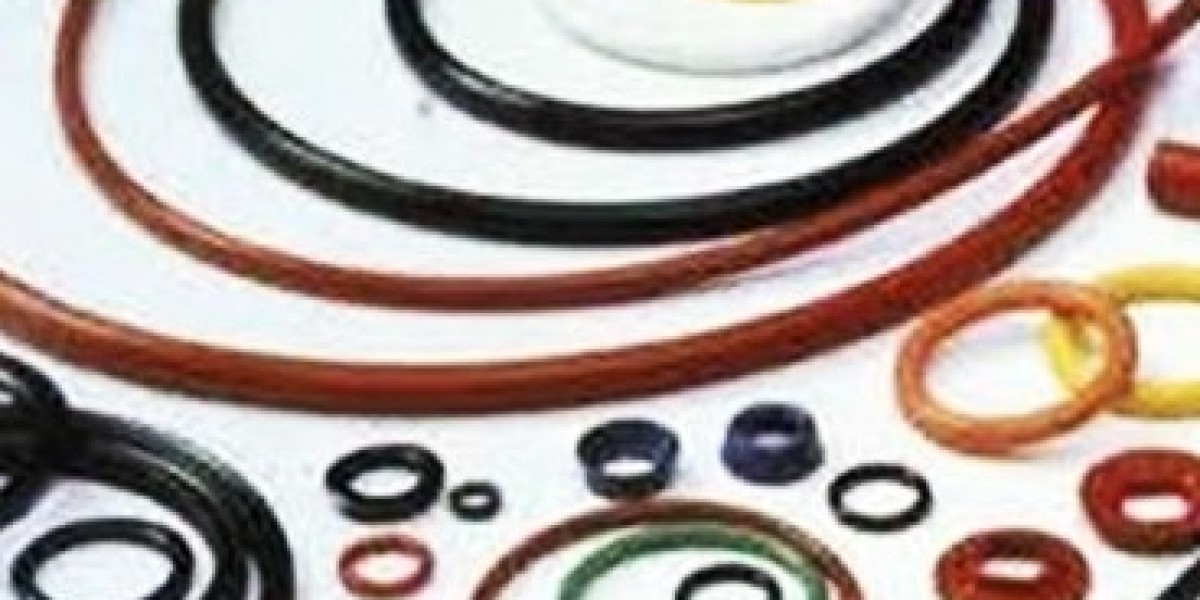Introduction: FPM O-Rings, also known as Fluorocarbon O-Rings or FKM O-Rings, are an essential component in various industries due to their exceptional chemical resistance, temperature tolerance, and sealing capabilities. In this article, we will delve into the properties, applications, and benefits of FPM O-Rings, shedding light on why they are a preferred choice for demanding sealing solutions.
Properties of FPM O-Rings:
Chemical Resistance: FPM O-Rings exhibit remarkable resistance to a wide range of chemicals, including oils, fuels, acids, and solvents. This property makes them ideal for applications where exposure to aggressive substances is common.
Temperature Tolerance: FPM O-Rings can withstand both high and low temperatures, making them suitable for extreme operating conditions. They maintain their sealing integrity in temperatures ranging from -15°C to 200°C (5°F to 392°F), with some specialty compounds capable of even broader temperature ranges.
Compression Set Resistance: These O-Rings have excellent compression set resistance, meaning they can maintain their original shape and sealing performance even after prolonged periods of compression or deformation.
UV and Weather Resistance: FPM O-Rings are highly resistant to UV radiation and weathering, ensuring their durability and performance in outdoor and exposed environments.
Low Gas Permeability: FPM O-Rings have low gas permeability, preventing the diffusion of gases through the material. This property is crucial in applications where gas sealing is essential.
Applications of FPM O-Rings:
Automotive Industry: FPM O-Rings are used in various automotive components, including fuel systems, engines, and transmission systems, where they ensure reliable sealing in the presence of fuels, oils, and high temperatures.
Chemical Processing: The chemical resistance of FPM O-Rings makes them indispensable in chemical processing equipment, pipelines, and valves, where they prevent leaks and maintain the integrity of the system when exposed to corrosive chemicals.
Aerospace and Aviation: In aerospace applications, FPM O-Rings are used in aircraft engines, hydraulic systems, and fuel systems, where they provide sealing solutions that can withstand both high altitudes and extreme temperatures.
Oil and Gas Industry: FPM O-Rings are utilized in oil and gas exploration and production equipment, ensuring effective sealing in drilling operations, pipelines, and valves subjected to harsh environments and fluids.
Medical and Pharmaceutical: FPM O-Rings find use in medical and pharmaceutical equipment, providing a reliable seal in devices that come into contact with various chemicals, including sterilizing agents.
Benefits of FPM O-Rings:
Reliability: FPM O-Rings offer a dependable sealing solution, reducing the risk of leaks, contamination, and system failures.
Extended Service Life: Their resistance to chemicals, temperature fluctuations, and compression set allows FPM O-Rings to have a longer service life compared to other sealing materials.
Versatility: The broad range of applications for FPM O-Rings showcases their versatility and adaptability to diverse industries and environments.
Cost-Effectiveness: While FPM O-Rings may have a higher upfront cost than some other materials, their extended lifespan and reduced need for frequent replacements contribute to long-term cost savings.
Conclusion: FPM O-Rings, with their exceptional properties and diverse applications, are a crucial component in various industries where reliable sealing is paramount. Their ability to withstand harsh conditions, resist chemicals, and maintain their sealing integrity positions them as a preferred choice for demanding environments, ensuring operational efficiency and safety. Read more…








